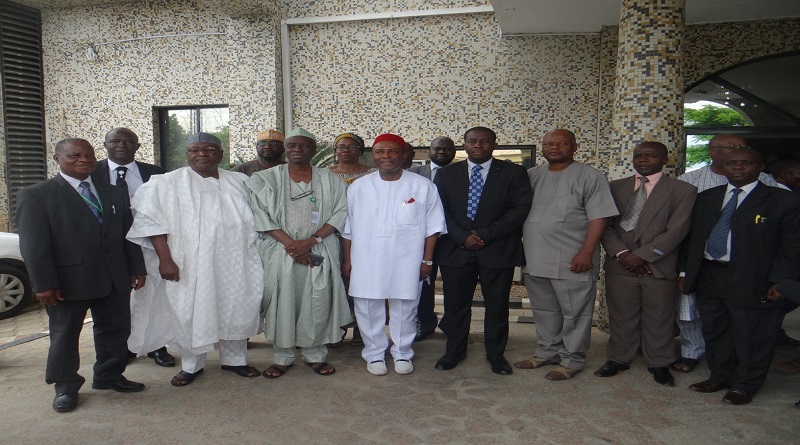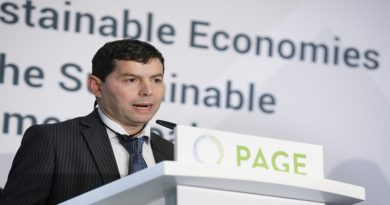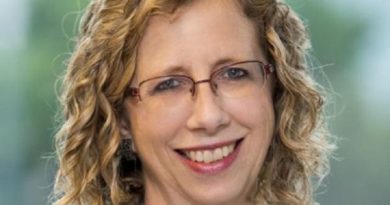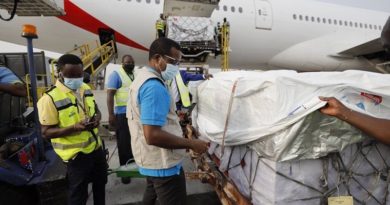SE4ALL: Nigeria validates action agenda
Following the successful conduct of Rapid Assessment, Gap Analysis and the drawing up of an action plan towards the realisation of Sustainable Energy for All (SE4ALL) in Nigeria, stakeholders at the end of a two-day technical workshop held at the nation’s capital Abuja between  July 14th – 15th  validated the action plan.
With the validation of the action plan, Nigeria has achieved a milestone towards realising the three primary objectives of ensuring universal access to modern energy services; doubling the rate of improvement in energy efficiency and doubling the share of renewable energy in the global energy mix by the year 2030 as set out in the SE4ALL target.
The United Nations General Assembly (UNGA) had recognised that access to modern and affordable energy services in developing countries is a vital instrument for achieving sustainable development. However, to address the challenge, the United Nations Secretary General in 2011 launched the SE4ALL initiative.
Similarly, the Nigeria Government on 23rd August 2012 at the State house officially launched the initiative in the presence of the then UNIDO Director General and Chair, UN Energy, Dr Kande Yumkella.
To domesticate the UN initiative in the country, the Energy Commission of Nigeria (ECN) with the support of the United Nations Development Programme (UNDP) moved into action with other stakeholders including government ministries, departments and agencies; organised sensitisation workshops and develop the rapid assessment and gap analysis that provides regional and international stakeholders with information on the current status of energy access, renewable energy deployment and energy efficiency.
At the opening ceremony of the two-day technical validation workshop on SE4ALL in Abuja on Thursday 14th July, Minister of Science and Technology, Dr. Ogbonnaya Onu, noted that the role of energy as a commodity for foreign exchange earnings and an instrument for growing other sub-sectors of the domestic economy as well as an instrument for international politics cannot be over emphasised.
The Science and Technology minister stressed that Nigeria has poor access to clean and modern energy services needed for development, hence the need for the country to focus on science and technology, which is emphasised in the global choice of renewable energy and energy efficiency as the main pillar on which the whole world can achieve sustainable energy for all by the year 2030.
The minister stressed that for Nigeria to be among the twenty (20) largest economies in the world by 2020, a secured, equitable and environmentally sustainable energy supply for creation of employment, which are inter-related challenges must be addressed.
“This can only be achieved through the transformation of Nigeria’s economy from one based mainly on fossil fuel to a low carbon economy based around renewable energy and energy efficiency.
“Fortunately, Nigeria is blessed with abundant renewable energy resources like solar, hydro, biomass, wind, etc that can easily be exploited and transformed into electricity, fuels and heat. Large scale exploitation of renewable energy resources will promote better mix of our national energy supply, thereby making development sustainable through self-reliance and the use of in-situ local natural resourcesâ€, the minister said.
He commended the UNDP Nigeria office for supporting the activities of Energy Commission of Nigeria, especially in the promotion of sustainable energy development in the country.
Director General/CEO, Energy Commission of Nigeria (ECN) Prof. Eli Bala, noted that energy is essential in driving and growing national economies as well as improvement in standard of living of mankind; with fuels, electricity and process heat being the most relevant form of the final energy.
The ECN DG explained that the Commission in the discharge of its statutory responsibility for strategic planning and coordination of national energy policies in all its ramifications, Â was supported by UNDP to work with other stakeholders, including government ministries, departments and agencies (MDAs) in domesticating the UN initiative in the country.
To this effect, he explained, sensitisation workshops on SE4ALL were held in 2012 and 2013. “In 2013 also a SE4ALL rapid Assessment Gap Analysis for Nigeria was carried out; and stakeholders met to validate the draft. The Rapid Assessment and Gap Analysis regional and international stakeholders with information on the current status of energy access, renewable energy deployment and energy efficiencyâ€.
Prof. Bala revealed that in developing the draft SE4ALL Action Agenda, a Lead Consultant, ECOWAS Commission, Prof. Ken Ike was engaged to work with all stakeholders as NEPAD provided the Africa regional platform, while the ECN played its coordination role.
He similarly commended UNDP for their support for sustainable energy development in Nigeria.
Representative of NEPAD, Mr. Sunday Dan Ogu, said the validation will support Africa action. He noted that the event came at the right time in line with the sustainable development goals and the change agenda of the government.
Lead Consultant, Prof. Ken Ike, said that SE4ALL will open up the energy component of the Gross Domestic Products of the country and exceed the threshold established by the UNDP.
UNDP Resident Representative and Country Director, Pa Lamin Beyai, represented by Mr. Muyiwa Odele, posited that SE4ALL is an articulation of strategies and activities for the promotion of sustainable energy which Nigeria really needs now.
“At a time when the county is experiencing energy challenges, which has led to many individuals and corporate bodies having to depend on the use of privately owned generators to meet their electricity needs, you will all agree with me that the SE4ALL Initiative will go a long way to complement Government’s efforts at increasing Nigeria’s access to electricity and other modern energy services for economic growth. Thus, the promotion of renewable energy technologies and energy efficiency becomes an imperative to meet the energy need of many Nigerians both in the rural and urban areas.
“Once validated, the SE4ALL Action Plan will become a viable instrument to help coordinate strategies and activities to meet the objectives of the SE4ALL initiativeâ€, he said.
The UNDP Country director reassured the Minister of Science and Technology and the DG of ECN that the organisation will continue to partner with the government and people of Nigeria to realize the objectives of the SE4ALL and the actualisation of national development priorities and the Sustainable Development Goals (SDGs).
The two-day technical workshop was attended by academia, civil society groups, media and government officials.




